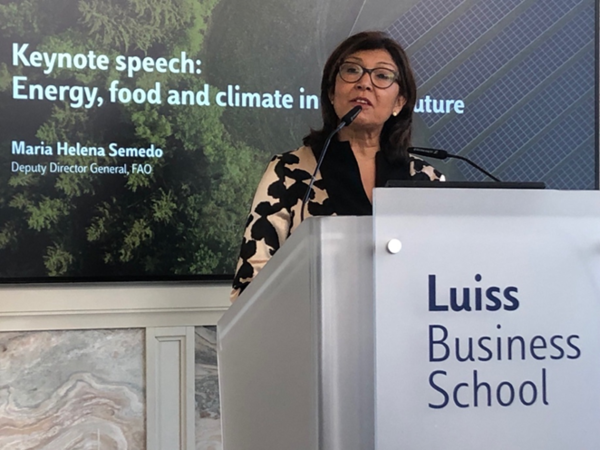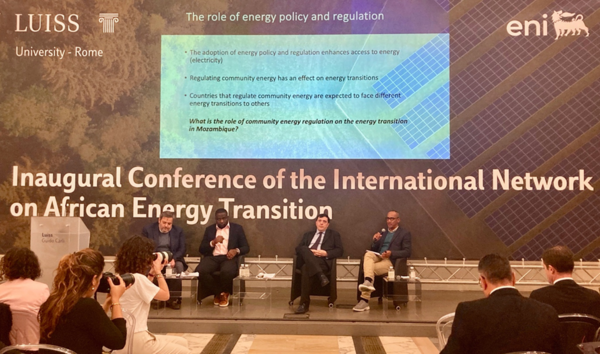CESET participates in inaugural conference of the International Network on African Energy Transition
CESET co-investigators Carlos Shenga and Lorraine Howe from the Centre for Research and Governance and Development (CPGD), Mozambique were invited to join the inaugural conference of the International Network on African Energy Transition (INAET), co-hosted by Luiss University and Eni, in Rome on 16-17 November 2023. The conference saw the participation of universities, research centres and institutions from across Africa (Algeria, Congo, Côte d’Ivoire, Egypt, Ethiopia, Kenya, Mozambique, Nigeria, Rwanda, and South Africa) with the aim of establishing a network to create and share knowledge on the continent’s energy transitions.
Maria Helena Semedo, Deputy Director General of the FAO delivered a keynote address on the nexus of energy, food and climate in Africa’s future. She highlighted the critical role of renewable energy and energy efficiency in reducing post-harvest food losses (particularly through cold chains), as well the importance of empowering women in agriculture and sustainable land use practices to tackle food insecurity and economically empower entire communities.

Conference sessions were held on the impact of climate change on Africa; Africa’s development paths and the resources needed; the younger generation's outlook on the energy transitions; Africa’s priorities in the energy transition; and the role of international players and the private sector in Africa’s energy transition.
During the conference Carlos Shenga presented CESET research on Mozambique’s off-grid regulation and its role in facilitating community energy access as part of the country’s energy transition. Lorraine Howe took the opportunity to raise awareness of CESET’s work on regulating the implementation of gender equality and social inclusion aspects in Mozambique’s energy sector, as part of discussions focusing on just and gender-inclusive energy transitions.

Going forward, the network will create synergies with African, European and international universities and institutions, such as the European University Institute, the International Monetary Fund, the Food and Agriculture Organization (FAO), the International Renewable Energy Agency (IRENA), the Atlantic Council, the Italian Ministry of Foreign Affairs, Cassa Depositi e Prestiti, and others. The aim will be not only to enhance African policy on sustainable energy transitions but also to influence European and international policymakers to Africa’s own energy transition priorities and needs.





